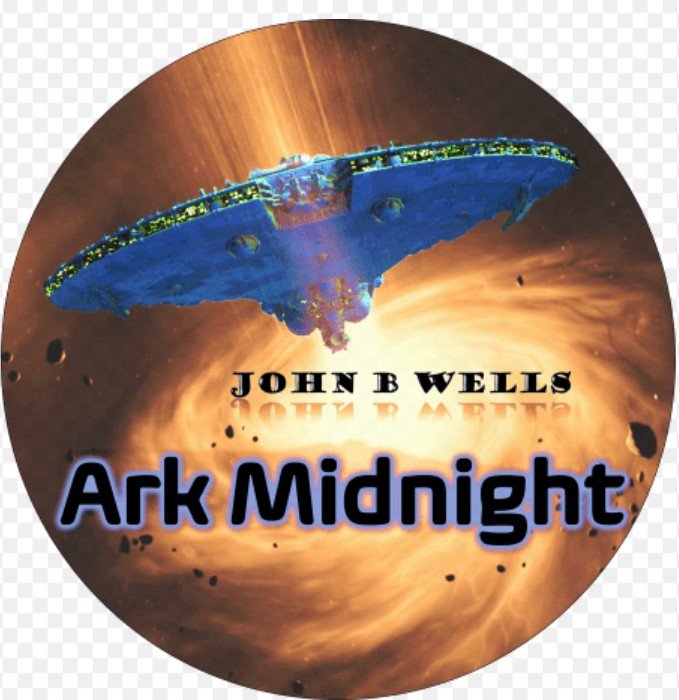Former Thatcher Speechwriter talks similarities between Charlie Kirk and death of his close friend
Via Ark Midnight. Interview with Gilson starts at the 6:21:10 Mark:
On a recent episode of Ark Midnight, host John B. Wells welcomed British author and lawyer Geoffrey Gilson to discuss the uncanny parallels between the recent assassination of Charlie Kirk and the still-mysterious death of Gilson’s close friend, Hugh Simmonds, in 1988. Over the course of the conversation, the two men explored not only the striking similarities in the circumstances, but also the broader implications for how politics, power, and secrecy operate behind the scenes.
Gilson began by recounting the personal story that has shaped much of his professional and intellectual journey. In the late 1980s, he was practicing law in the United Kingdom and had developed a close friendship with Hugh Simmonds, a rising political figure with strong connections inside Britain’s Conservative Party. Simmonds, he explained, was ambitious, charismatic, and well-positioned to climb higher in British politics. Then, suddenly, in 1988, Simmonds was found dead under circumstances that were never adequately explained. Officially described as a suicide, the case raised more questions than it answered. Gilson described his own efforts to learn the truth, leading him deep into the shadows of intelligence agencies, covert finance, and political intrigue.
Wells pressed Gilson on why he believes Simmonds’s death was not what it appeared. Gilson explained that his friend was at the intersection of delicate political operations, including rumored covert funding channels and connections to Western intelligence. For someone like Simmonds, simply knowing too much could have been a death sentence. When the official narrative was rolled out—quick, superficial, and dismissive—Gilson felt it was a cover story rather than a conclusion. That sense of a “scripted explanation” is what first made him see parallels to recent events in the United States.
Ark Midnight’s Intelligence Briefing
The discussion then shifted to the shocking assassination of conservative commentator Charlie Kirk, which unfolded in public and in real time. Gilson noted that, just like with Simmonds decades earlier, the first wave of reactions seemed almost too neat, with authorities rushing to define the narrative before deeper questions could be asked. He stressed that while the circumstances differ—Simmonds allegedly dying by his own hand in 1988, Kirk cut down by an assassin in 2025—the cultural and political dynamics surrounding the two deaths feel disturbingly similar. Both involved polarizing figures who challenged established powers, and both quickly generated a cloud of mystery and suspicion.
Wells and Gilson dwelled on another eerie similarity: the way public discourse around these deaths has been weaponized. In the U.K. of the late ’80s, critics and supporters of Simmonds’s party immediately twisted his death into political talking points, obscuring the deeper search for truth. Today, with Kirk’s assassination, social media has amplified the same tendency. Instead of coming together in mourning, Gilson observed, many Americans used the moment to entrench their political divisions, with some voices even celebrating the murder because they despised Kirk’s views. To Gilson, this reaction says as much about cultural decay as it does about the crime itself.
The heart of the interview circled around one sobering theme: when political violence is either explained away too quickly or normalized by a divided culture, the danger to democracy is profound. Wells pointed out that in both cases—the death of Simmonds and the killing of Kirk—the “truth” was elusive, but the official narratives were immediate. He questioned whether such swift conclusions are designed to protect institutions rather than the public. Gilson agreed, adding that power often protects itself by smothering uncomfortable facts.
In their closing exchange, Wells asked Gilson what lessons Americans should draw from Simmonds’s fate. Gilson responded that societies cannot allow themselves to grow numb to political violence or complacent about truth. Once citizens accept either the silencing of voices by force, or the quick burial of mysteries by official decree, liberty itself is at risk. He urged listeners to resist the temptation of partisanship and to focus instead on defending the principle that no one, regardless of ideology, should be killed or dismissed for their beliefs.
Ultimately, the interview painted a chilling picture of history rhyming across decades and continents. For Geoffrey Gilson, the unresolved questions surrounding Hugh Simmonds’s death echo loudly in today’s America. And for John B. Wells’s audience, the message was unmistakable: without vigilance, political violence and secrecy can erode the very foundations of democracy, just as surely as bullets or lies.


